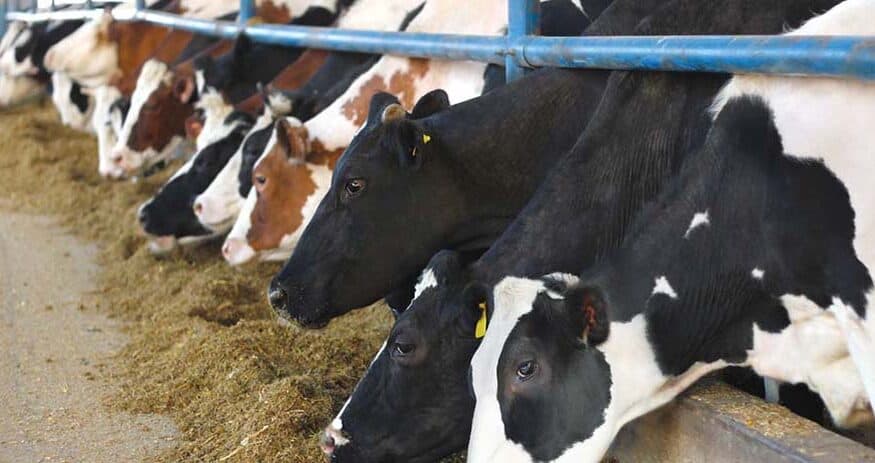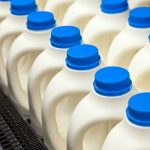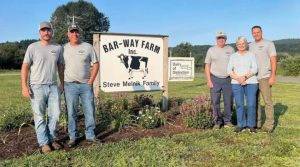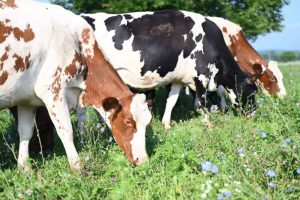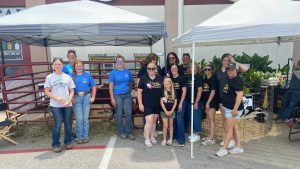
Dutch manufacturer settles class action by dairy farmers.
Three years of litigation have ended with a settlement of nearly $122 million in a class action over problems dairy farmers encountered while using a robotic milker. U.S. District Judge Katherine Menendez granted final approval of the settlement on Sept. 1 in St. Paul.
Milking robots are machines that milk cows instead of farmers doing it by hand, with the cows setting their own milking schedules. The technology was introduced in the United States a couple of decades ago. Robotic milkers are intended to slash labor costs, increase milk yield and save time. Cows are also supposed to be less susceptible to infections and stress due to the robotic system’s voluntary rotation.
However, only a small percentage of dairy farms use the machines because of their cost. Each unit costs roughly $200,000, with many dairy farms requiring two or three to fully transition their operations to robotic.
Lely is a Dutch company that designs and manufactures robotic milking systems, including the Lely Astronaut A4 robotic milking system. It owns Maasland, which wholly owns Lely North America, an Iowa-based subsidiary of Lely.
Jared Kruger, a dairy farmer who lives in Wabasha, Minnesota, purchased a Lely Astronaut A4 robotic milking system from Dairyland Equipment Services. A year after purchasing the system, he noticed a heightened somatic cell count in the cows’ milk, indicating an immune response to a mastitis-causing pathogen. The cell count increased enough that it was no longer able to be certified as Grade A. Kruger alleged that the robotic milking unit was defective and had caused infection to the cows’ udders.
Kruger contacted Dairyland to let them know that the system was failing to separate contaminated milk, properly examine milk quality, or detect mastitis. Although Dairyland washed the system and checked the vacuum pump, the Lely Astronaut A4 robotic milking system continued to have issues. Eventually, Kruger stopped using the system.
Originally, Kruger sued Lely along with three other dairy farmers. They voluntarily dismissed their claims. Subsequently, Kruger brought the action on behalf of himself and a putative class.
Kruger alleged breach of contract, breaches of express and implied warranties, fraudulent concealment, negligence, and strict liability. Additionally, Kruger accused Lely of violating the False Statement in Advertising Act, the Minnesota Deceptive Trade Practices Act, and the Prevention of Consumer Fraud Act.
Litigation went on for nearly three years. After discovery and mediation, the parties were able to agree on a settlement. The class consisted of around 400 members. Nearly all of the class members participated, which Menendez noted was “unprecedented” and “far exceeds the average claims rate.”
Class members were able to choose from two options, and there was about a 50-50 split in which options class members selected. They could trade in their A4 systems for an A5 system for a substantially reduced payment of $40,000. Alternatively, they could get a share from a cash fund established by Lely. That amount varied based on how many robots were purchased. They also received another $1,000 per A4 and either a four-year extended warranty or another $7,000 cash per A4.
“This is another historic nationwide class settlement that will provide extraordinary financial and operational relief to farmers who purchased the Lely A4,” said Patrick Stueve, partner at Stueve Siegel Hanson LLP in Kansas City, Missouri, which led the plaintiffs’ case.
Stueve says “another” because the settlement comes just a year after final approval for a settlement involving DeLaval, another company that manufactures milking robots. That was a $55 million settlement that involved 185 farmers.
In May 2022, Stueve Siegel Hanson, Cullenberg & Tensen PLLC, and Perrone Law PLLC filed another lawsuit against DeLaval and Tetra Laval, arguing that the milking robot VMS V300 has the same or similar defect. That case is still pending in U.S. District Court in Minnesota.
Lely’s General Counsel Caius Ort stressed in a press release that the company disagreed with the plaintiffs but agreed to settle to stop drawing it out.
“We do not agree with the assertions made against our company in the lawsuit,” stated Ort. “However, the legal process is lengthy, expensive and distracting — so we have decided to reach a settlement that is in the best interest of Lely, as well as our employees, our Lely Center network and our customers. This decision allows us to move on and to focus on what we do best, which is to provide a sustainable, profitable and enjoyable future in farming for our valued customers.”
